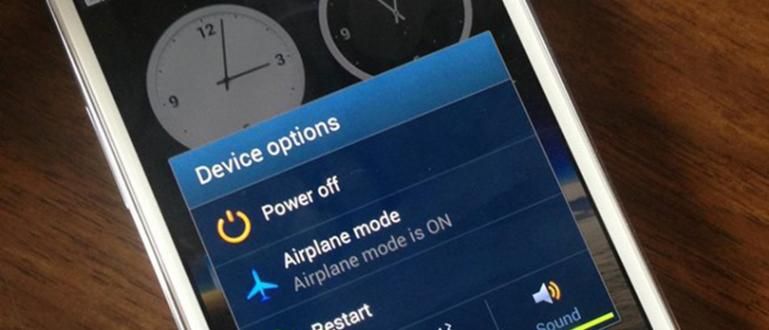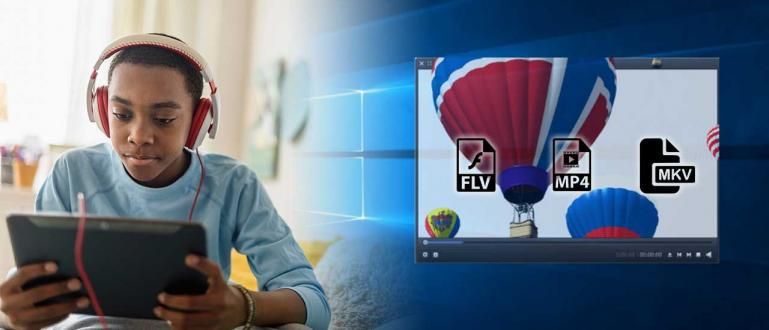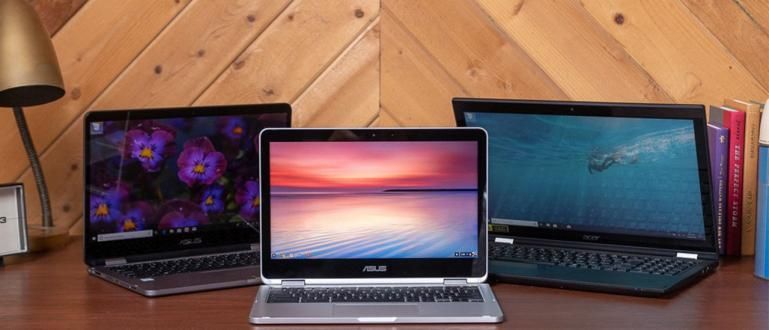This is how to speed up Google Chrome on a PC, so that it runs lightly, aka anti-slow and saves RAM.
First released in 2008, Google Chrome has now become one of the best and most popular browsers in the world. Both for the PC and the mobile version, because it is flexible, has many features, and is also available online cross platform. Sadly, Chrome also known to waste RAM and drain laptop battery life.
Then, how to speed up Google Chrome and make performance more stable and not easy? crash even if you have multiple tabs open? Try to open Task Manager on your computer, you'll see there are lots of different entries for Chrome. Because each tab, plugins, and certain extensions contribute to memory consumption. This is actually to provide a faster experience, but in practice it will actually reduce performance and drain battery.
- Easy Ways to Enable Reader Mode on Google Chrome Android
- Here are the 10 Best Web Browsers to Replace Google Chrome
- How to Save Internet Data Quota on Google Chrome on PC
7 Tips to Make Google Chrome Run Fast and Save RAM

Google is neither blind nor blind to this problem. Now you can do several things to curb RAM usage, so that Chrome continues to run lightly, aka not sluggish. Reported from TechspotHere, ApkVenue shares some 'hidden' features as a way to speed up Google Chrome to get the most out of browsing.
1. Close Manually

When Chrome starts to feel sluggish, see the processes running in the background by pressing the key combination CTRL+ALT+Delete to open the Task Manager. Next, go to the Processes tab, where you can see Chrome's RAM usage. Well, how to speed up Google Chrome first, just close what you don't need.
2. Remove Unused Extensions

Just because you like download videos on YouTube, so you can download one click doesn't mean you need an extension that runs all the time. Be selective about installing extensions, you can also set them manually and turn them on when needed. If necessary, delete it when not really in use.
3. Activate the Plugin Click-to-play
Chrome is now starting to block ads in the form of Flash and will also start blocking standard Flash from the end of this year, except for a few large sites. Chrome itself already has features built-in click-to-play that works for every plugins. To activate it go to "chrome://settings", click on "Show advanced settings", then click "Content settings". Scroll down to section plugins and select "Let me choose when to run plugin content".

Also make sure that the "always allowed to run" is not activated, because it will overwrite the settings click-to-play. Well if you see something unimportant in the list plugins, turn it off or remove it like we did with the extension.
4. Install One Tab Extension or The Great Suspender
If you tend to have multiple tabs open at once and don't intend to change that habit, there are some extensions that can help save ram for Google Chrome. The two most popular choices are One Tab and The Great Suspender. One Tab lets you close each open tab with one click and turn it into a list instead. If you need to access those tabs, you can restore all tabs at once or individually by clicking on link each. You can also easily export and import tabs as a list of URLs. Depending on how many tabs are running and how many scripts are running within the tabs, moving all tabs to One Tab can be the most significant way to speed up Google Chrome.

Switch to The Great Suspender, the way it works will automatically suspend unused tabs for a while. Free up memory and CPU used by unused tabs. Tabs can return when you click again, you can also configure how long to wait before tabs are suspended.
Google itself is testing a feature called discarding tabs start on Chrome version 45, in much the same way as The Great Suspender extension. If enabled, the tab will be automatically discarded when the system memory is low and will reloaded when clicked. Interestingly, Chrome will add serialization tabs so after tabs are suspended and reload Repeat when clicked can still return to exactly where you left off.
5. Try Chrome's Experimental Features
Those of you who want to feel the sensation of a series of new features that are currently being developed by Google can try experimental features in Chrome. How to open chrome://flags to address bar, you will be held up with a brief warning saying experimental features are subject to change, crash, or disappear any time. Here are some suggested features that you might try.

- Number of raster threads: Changing this number from "Default" to "4" will speed up the process rendering picture.
- Enable fast tab/window close: To make tabs close faster.
- Enable experimental canvas features: Allows Chrome to use a blurry canvas to speed things up loading web page, which automatically removes everything below the canvas pixels that is not visible to the user.
- Automatic tab discarding: As ApkVenue mentioned above, if activated the tab will be automatically discarded when the system memory is low. Click info chrome://discards.
- Audio tab muting UI control: Turning on this feature will create an audio indicator, so you don't have to switch tabs to turn off the audio.
There are over a hundred experimental features that come and go, Google is constantly adding to the tested features and removing many of them as part of testing. Choose whatever you need as a way to speed up Google Chrome to add a more enjoyable browsing experience.
6. Enable Data Saver

If the internet connection is slow, don't forget to activate the data saver which will reduce data usage significantly. Chrome will compress the page you visit before finally downloading it. It should be noted that pages accessed using a private connection (HTTPS) or in incognito tabs will not be able to be optimized.
7. Clear Cache and Use Default Theme

Other tips you can delete History Provider Cache to free up some space if needed and avoid using custom themes as it will only use up system resources. You can also speed up your browsing experience by learning how to use shortcuts keyboard on Chrome.
That's how to speed up Google Chrome so that Google Chrome saves ram which can maximize your browsing experience. Don't stick with one browser, you can use other alternative browsers to get a match. Like Firefox, Opera, and Safari. So, what is your favorite browser and why? Let's debate in the comments column.









